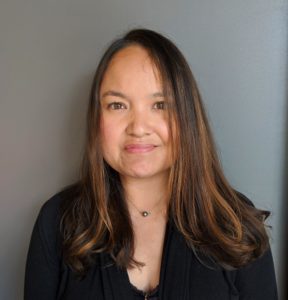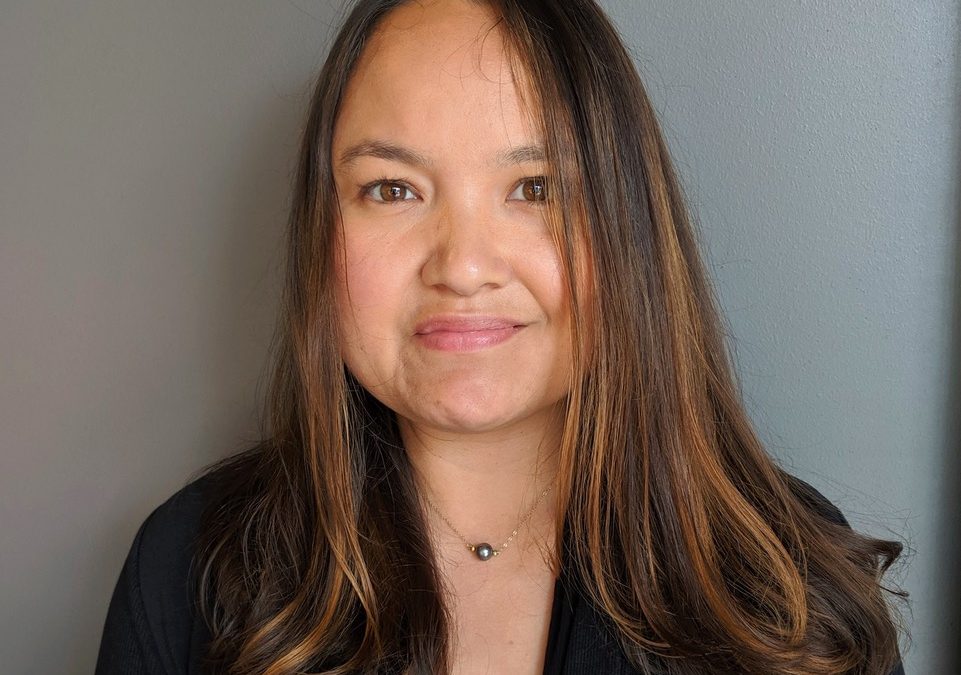Our newest staff member and business manager Sonia Nelson brings a long-standing passion for theatre and 10+ years’ experience working in arts and culture. Recently graduated with an MFA in Arts Leadership, she worked with The Seattle Office of Arts and Culture to write her thesis on advancing racial equity in the arts and with MEM Consultants. I sat down with Sonia to learn about more about her and the wisdoms she has to share…
How did you get started in the arts?
I started ballet when I was 4 years old and I’ve always loved singing. My mom tells me I used to make up my own songs even as a baby. I wanted to be one of those kid actors on Barney and made my mom film an audition tape when I was 5. I was too embarrassed to send it in, ha! But dance, choir, and theatre have always been a part of my life and move me in ways nothing else does.
What interested you most about Sound Theatre?
Sound’s mission and proven commitment to social justice and equity aligns with what’s in my own heart. I want my work to support vehicles that lift others up and help create space to tell their stories. I want to support arts access, so things like Sound’s radical hospitality ticketing inspire me. I also was very excited to work with and learn from a team of all women leaders. It is still so rare to see women and people of color in top leadership roles in arts organizations.
Tell me about your thesis about Advancing Racial Equity in the Arts!
The first part of the project was a literary review (a.k.a. lots of academic research) around the issue of racial equity in the arts and how it has evolved over time. For the second half, I worked with Kathy Hsieh and the Seattle Office of Arts & Culture (ARTS) who shared with me data collected from ARTS’s racial equity self-assessment.
Here is a short summary: Equality and equity are not the same thing. In conjunction with ARTS, this project explored the evolution of diversity, inclusion, and racial equity efforts in the arts over time and gave a snapshot of where we stand as a region. The project included an analysis of Racial Equity Self- Assessments of over 150 Seattle-based arts organizations who participated in the assessment as part of the ARTS grant process. What are the common barriers to equity? And what strategies are arts leaders currently implementing to improve equity in their organizations?
“I seek to find how we can embrace more equitable practices and habits on all levels of our business operations… an ongoing process that we must persist in as a community.”
What’s the most useful thing you’ve learned from supporting evaluation projects with MEM Consultants?
I learned a lot of about the value of good data visualization and how to effectively utilize it to make sense of data and aid decision making. There are so many more ways to illustrate numbers and data trends beyond the bar graph or pie chart. What good are numbers if they don’t tell a story?
How do you hope to apply this to your work with Sound Theatre?
I’m someone who believes that equity practices on the internal admin side of an arts organization are just as important as they are on the artistic programmatic side. I seek to find how we can embrace more equitable practices and habits on all levels of our business operations. There is no magic checklist, but rather this is an ongoing process that we must persist in as a community.
What’s something cool about yourself people might not know?
I love knitting and crochet, particularly Amigurmi (Japanese for knit or crochet stuffed creatures)! I’m always working on various projects and I occasionally teach crochet classes at local yarn shops (when things were still open…)
How has your identity influenced what you want to do in the arts?
As a multi-racial Asian woman, I have struggled to find examples of folks like me in the arts–on stage or otherwise. During undergrad I pursued acting and struggled to find work I could fit. I hated how even in the rare instance I was up for something like Miss Saigon–where the piece is centered around Asian characters and not a side note–I would still be railing against offensive stereotypes and typecasting. The last show I ever auditioned for, I went out for a role that was written specifically as an Asian character. They instead cast an African American actress and re-wrote the script to support it as a Black character. Although she was a very talented actor and deserving of every success, I was so tired of seeing artists of color pitted against one another and this huge disparity of opportunity.
Tracing this issue to the roots, it led me to look at: who gets to make these decisions? Who decides who is cast, what is produced, or how money is spent? How can I make a living and work toward creating more access and opportunity for artists of color? Why isn’t an arts career regarded as any other? Why do so many artists struggle to make a living? What can I do to change that reality? I think these are questions that I will always be trying to answer, but they also motivate me to never stop asking.

We’re excited to have Sonia on the team!
Stay connected with Sound Theatre Company. Sign up for our mailing list and be the first to know about important company updates.
